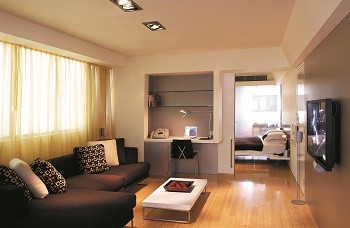June 20, 2014

Modern residential HVAC systems utilize various methods of bringing heat into the house.
Some HVAC systems may take in the air inside the house using refrigerant gas before bringing it outside. Other systems normally use natural gas or electricity to warm the interior of the house. It is essential to check on the energy-saving features when looking for a good residential HVAC system.
Systems Using Natural Gas
It is important to be aware that natural gas HVAC systems create heat by burning natural gas. Propane is used in areas where natural gas is unavailable. Reasonably-priced gas furnaces are practical for areas where the climate is too cold to use heating pumps in warming up the house. Even though natural gas does not burn as efficiently compared to other fuels, it is much cheaper compared to these fuels. Maintenance will be less using these systems compared to conventional oil furnaces.
Transference Systems
These systems are considered to be the most energy-efficient system since it circulates heat instead of producing it. Even as the heat pump is the best method of transference, air conditioning will automatically perform the same function. Heat pumps bring warm air outside in cooling the house. It also brings warm air inside when it warms up the house. One disadvantage of using heat pumps is that they may not function efficiently when the climate is warm. Another disadvantage is that they are expensive to install.
The Property-Sized Systems
There are some HVAC systems designed for use in commercial and residential buildings of different sizes. An HVAC system that is too big will continuously start and stop and result in expensive utility bills. However, an HVAC system that is too small will continuously run, which will result in increased maintenance and utility bills.
Latest HVAC Systems to Cool the House
A number of modern HVAC technologies were introduced over the past decade. These technologies are energy-efficient and can be cost-effective. Among these technologies that were introduced include:
- Heat recovery systems
- Nest learning thermostats
- Residential zoning units
- Passive dehumidification
- Home automation
- Desiccant Enhanced Evaporative Air Conditioner or DEVAP systems
A significant amount of information about HVAC systems is readily available on the internet. It is essential to keep in mind that regular preventative maintenance will ensure that these systems will be efficient in heating or cooling the house. For more information, call Scott-Lee Heating Company at (314) 200-0788.
Photo credit: commons.wikimedia.org via Google
